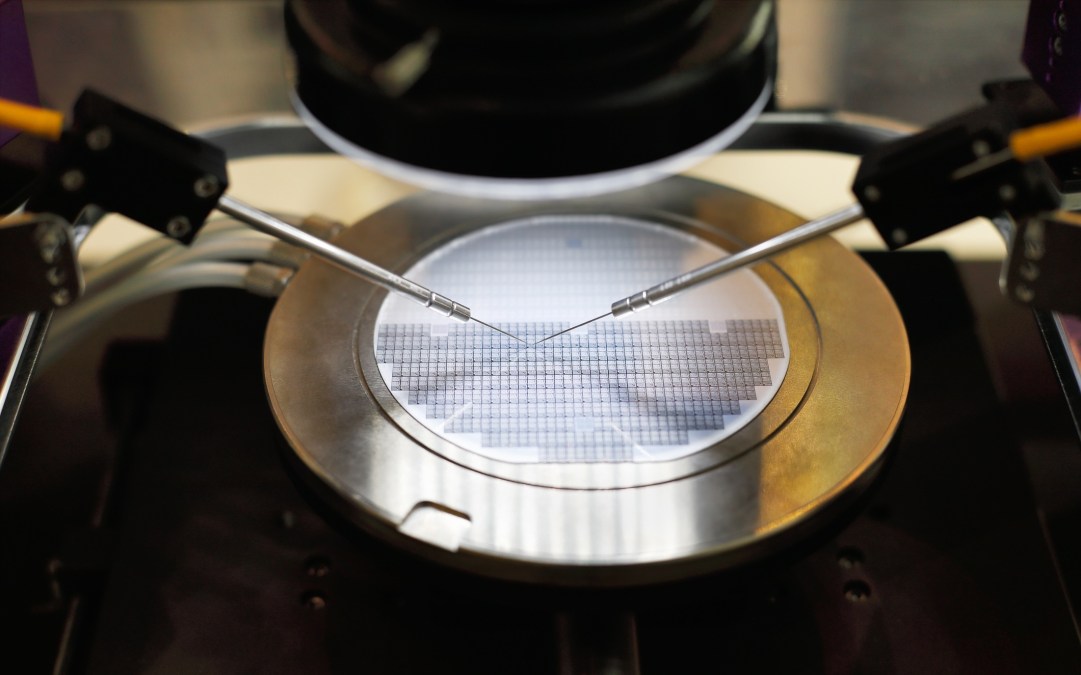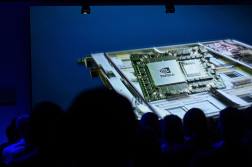Commerce limits 19 Chinese, Taiwanese companies from buying U.S. tech

The Commerce Department plans to finalize economic sanctions this week on nearly 20 Chinese and Taiwanese organizations, citing the need to limit their access to U.S. cloud, artificial intelligence and quantum computing technologies.
The sanctions, which will be detailed and published Friday in the Federal Register , would place additional license requirements on, and limit the availability of, license exceptions for exports, re-exports, and transfers of certain technologies to those entities.
Among the Trump administration’s stated goals for the sanctions are restricting the Chinese government from acquiring high-performance and exascale computing capabilities to build AI systems and quantum computers for military use.
“We will not allow adversaries to exploit American technology to bolster their own militaries and threaten American lives,” Commerce Secretary Howard Lutnick said in a statement. “We are committed to using every tool at the Department’s disposal to ensure our most advanced technologies stay out of the hands of those who seek to harm Americans.”
The newly added Chinese entities include the Beijing Academy of Artificial Intelligence and Beijing Innovation Wisdom Technology, for acquiring or attempting to acquire U.S. products for AI models, as well as advanced computing chips. Those efforts, the Commerce Department claims, are in support of the Chinese government’s larger military modernization goals.
Six Chinese and Taiwanese subsidiaries of Inspur Group, one of China’s largest cloud computing firms, were also placed on the sanctions list, citing their use of U.S. parts and components in the development of supercomputers for the Chinese military.
Four other Chinese firms — Henan Dingxin Information Industry, Nettrix Information Industry, Suma Technology and Suma-USI Electronics — were sanctioned for their alleged development of Chinese exascale supercomputers and providing manufacturing support for Sugan, a previously sanctioned Chinese entity.
The firms were all placed on the Bureau of Industry and Security’s export sanctions list for organizations engaged in “activities contrary to the national security or foreign policy interests” of the United States. The designation limits the ability of these companies to gain licenses to buy, import or otherwise legally acquire technologies from U.S. firms that may be used to power Beijing’s cloud, AI and quantum computing ambitions.
For certain entities, such as the Beijing Academy of Artificial Intelligence and Beijing Innovation Wisdom Technology, those license reviews will happen with a “policy of a presumption of denial.” For others, such as the firms working on exascale supercomputing, the reviews will be done under a “policy of denial.”
A separate Commerce action set to be finalized Friday places similar sanctions on an additional seven Chinese companies for their work developing quantum computing technologies. Those companies include Scikro (Hong Kong) Instruments, Scikro (Shanghai) Instrument, Anhui Kehua Sci-Tech Trading, Associated Optoelectronics, Chongqing Southwest Integrated Circuit Design, ORICAS Import and Export Corporation, and Physike Technology.
The sanctions are the latest example of bipartisan U.S. efforts to restrict or stop the flow of U.S. technologies and equipment — such as high-performance computing chips — that are foundational to a number of emerging technologies like AI and quantum computing. The Biden administration spent much of its last two years in office attempting to restrict the flow of semiconductors to China.
Previous attempts to restrict the supply of similar technologies to China have had mixed results. While conventional wisdom over the past year held that China was behind the U.S. in the global AI race, 2025 has seen multiple Chinese companies release large language models that are capable of performing as well as many of the top American-made models, in some cases with far more efficient computing and (allegedly) at a significantly cheaper cost.
China has also been steadily working to build up its own domestic industry for semiconductors and other key technologies, with the goal of weaning itself off dependence from U.S. firms.
“This is shocking to me, because I thought that the restrictions we placed on chips would keep them back,” former Google CEO Eric Schmidt said last November when discussing Chinese AI advancements over the past year and a half.






